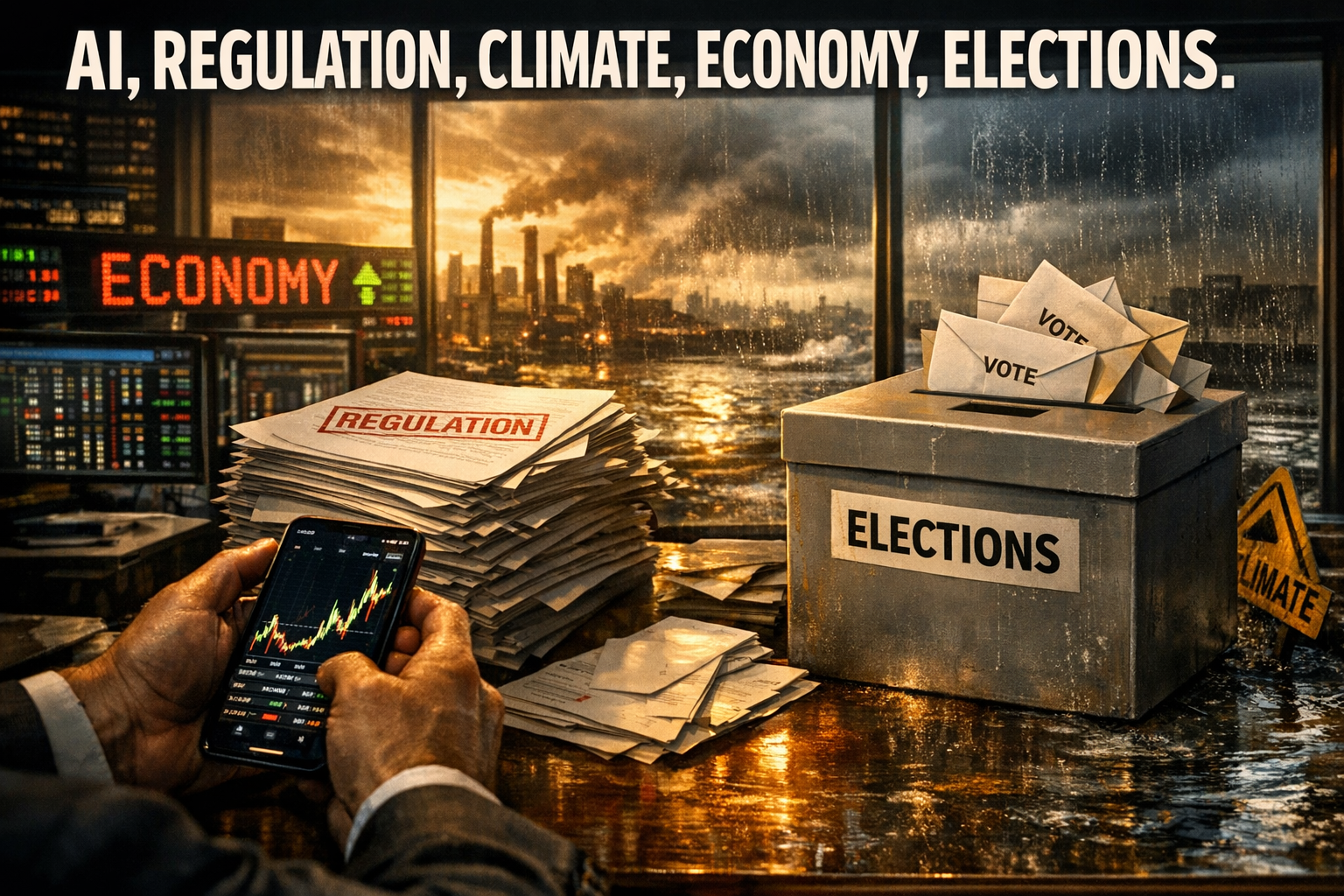● Netanyahu’s Regime-Change Gambit
Analysis of the Development of the Middle East War and Its Economic Impact
Military Strategy and Deployment Status
Recent armed conflicts between Israel and Iran continue.
The United States is moving the Nimitz aircraft carrier and aerial refueling aircraft to the Middle East to strengthen its military operational readiness.
This move is interpreted as the United States preparing options for a full-scale war.
Israel continues to conduct airstrikes on Iran, citing the elimination of the threat of nuclear ballistic missiles as justification.
Along with these superficial goals, Israel’s ultimate strategy includes attempts to dismantle the Iranian regime and collapse the system.
Distinguishing Between Superficial Goals and Ultimate Strategies
The Israeli side insists on eliminating the nuclear threat by raising the issue of uranium enrichment through the nuclear agreement.
However, according to the International Atomic Energy Agency (IAEA) report, Iran’s enrichment level has not yet reached the weapon manufacturing stage.
While the superficial goal is focused on resolving the nuclear issue, the actual ultimate goal is focused on the collapse of the Iranian regime and the overthrow of the system.
Israel’s attacks target not only military facilities and nuclear facilities, but also major infrastructure (oil, natural gas, etc.), which could directly affect the supply chain.
This could increase financial market instability, inflation, and overall economic uncertainty.
Economic Ripple Effects of the War
If the Middle East war is prolonged, both the financial market and the real economy are expected to suffer a major shock.
In particular, Iran occupies an important position among the OPEC countries, which account for 82% of the world’s oil reserves, so disruptions in oil supply may occur.
Paralysis of major sea lanes (such as the Strait of Hormuz) may cause disruptions in the supply chain due to increased logistics costs, increased sea freight rates, and insurance premiums.
The shock to the overall economy may lead to rising inflation and financial market instability, which also carries the risk of negatively impacting the domestic economy.
In addition, Iran’s domestic economy is already facing difficulties such as slowing growth, rising unemployment, and increasing government debt, so military operations aimed at collapsing the system may cause a vicious cycle throughout the economy.
Long-Term War Scenarios and Global Economic Outlook
If the war is concluded with a short-term agreement, the economic impact may be limited.
However, if it expands into a full-scale war and is prolonged, major economic variables such as oil, economy, financial market, inflation, and supply chain will be affected simultaneously, increasing global economic instability.
In particular, countries with a high proportion of Middle Eastern oil may be hit harder.
Major powers such as the United States are also reorganizing their military and economic strategies in the context of related interests, which is expected to change the world economic landscape in the future.
In the midst of uncertainty in the international situation and financial markets, investors and policymakers are expected to need a cautious approach.
Economic Outlook and Response Strategies
If this war is prolonged or turns into a full-scale war, instability across the economy will be inevitable.
In particular, if the global oil market becomes unstable, inflationary pressure will increase due to supply chain disruptions and increased logistics costs.
The financial market is likely to see a contraction in investment sentiment due to increased uncertainty, and policymakers must develop appropriate response strategies.
Practical response measures include diversification of energy supply and demand, stabilization of the supply chain, and management of financial market risks.
At the same time, close international cooperation and policy coordination are essential to increase the resilience of the global economy.
Summary
The development of the war between Israel and Iran includes the ultimate goal of targeting nuclear issues and regime collapse, along with the United States’ military preparations.
On the surface, the elimination of the nuclear threat is the justification, but in reality, the purpose of inducing the collapse of the Iranian regime and economic weakening is strong.
If the war is prolonged, it is expected to have a significant impact on the global oil, economy, financial market, inflation, and supply chain.
Therefore, if the war is not concluded with a short-term agreement and expands into a full-scale war, there is a risk that negative shocks such as international economic instability and supply chain disruptions will intensify.
[Related Articles…]
Oil Market Trends
Analysis of Economic Instability Factors
*YouTube Source: [경제 읽어주는 남자(김광석TV)]
– [속보] 이란의 합의 요구에도 이스라엘이 공격을 지속하는 이유. 미국 항공모함 중동으로 이동. 이스라엘 네타냐후의 궁극적 목적은? 이란의 ‘신정체제 붕괴’ 노리나 [즉시분석]

● Powell’s Hawkish Stance- Retail Sales Mixed
Unprecedented Reasons for the FMC and Analysis of Key Economic Issues
FMC Event Preparation and Broadcast Schedule
As it is the day before the FMC announcement tomorrow, the impact of the FMC on the economy as a whole, including currency, interest rates, and inflation, is expected to be enormous.
The FMC will start in the early morning without live broadcasts in the morning and evening, and a three-person broadcast and Powell interview are scheduled.
Interpreter Kook Da-yeon will be with us for simultaneous interpretation, so we will proceed carefully so that there are no difficulties in understanding the content.
Necessary information will be delivered through reruns or breaking news, so be sure to check it all.
Powell’s Remarks, Inflation Expectations, and Interest Rate Trends
Powell and Fed officials are focusing on soft data and inflation expectations, even if direct comments are difficult.
The impact of preemptive price increases and changes in the psychology of companies and workers on consumer prices is being intensively analyzed.
The role of tariff inflation effects and consumer sentiment in interest rate decisions will be discussed in detail in the FMC announcement.
There is a lot of concern that the inflation outlook for the next six months could directly affect tomorrow’s price decisions.
Trump’s Middle East Diplomacy and Oil Price Trends
President Trump announced a hard-line strategy after the G7 summit, taking an independent line on Iran’s nuclear negotiations.
The IAEA’s analysis shows that Iran’s nuclear facilities have been attacked, raising concerns about all-out war risk and oil price fluctuations.
Oil prices are currently maintaining the $70 range, but there is a possibility of a short-term surge to $90-$100 if a full-scale war is possible.
Trump is taking steps to address the Middle East while simultaneously considering the impact of oil prices and the economy.
Economic Indicators and Retail Sales Trends
The latest retail sales figures fell significantly more than expected, signaling a slowdown in consumption.
The effect of pre-tariff purchases was reflected, but the revised data suggests that consumer sentiment is contracting.
Overall economic data is mixed, but the downward trend in indicators may act as a short-term economic instability factor.
Stock Market and Corporate Analysis
Semiconductor and AI-related companies such as AMD and NVIDIA are attracting investors’ attention due to positive demand and supply chain improvement news.
Barclays’ upward revision of NVIDIA’s target price and AMD’s GPU rebound prospects are spreading market expectations.
SoftBank is selling a large amount of T-Mobile shares to raise AI investment funds, and although there is a short-term stock price decline, long-term growth momentum is expected to be maintained.
End of Renewable Energy Subsidies and Impact on the Solar Market
The U.S. Senate’s announcement of a plan to phase out ITC/PTC renewable energy subsidies from 2026 is expected to shock the solar and wind power markets.
The end of subsidies may cause short-term stock price shocks and a contraction in investment sentiment, but the market may rebound depending on long-term policy adjustments.
The renewable energy industry is analyzing that it is urgent to prepare countermeasures in response to policy changes.
< Summary >
Tensions are at an all-time high the day before the FMC announcement, and the entire FMC event will be covered in a three-person broadcast and real-time interpretation early tomorrow morning.
Instead of making direct remarks, Powell will focus on inflation expectations and tariff effects, and psychological factors are expected to have a significant impact on interest rate decisions.
President Trump is preparing for a hard-line response to Middle East Iran nuclear negotiations and oil price trends, and is preparing for the risk of all-out war and the possibility of a surge in oil prices.
Economic indicators show a decline in consumption indicators such as retail sales, and the stock market shows positive prospects for semiconductor and AI-related companies such as AMD and NVIDIA.
Meanwhile, investors should pay attention to the fact that the gradual end of renewable energy subsidies could have a short-term impact on the solar market.
This article naturally includes the best SEO keywords related to economics such as FMC, Powell, interest rates, Trump, and inflation.
[Related Articles…]
View the latest FMC issues
Latest updates on interest rates and economic outlook
*YouTube Source: [Maeil Business Newspaper]
– [美개장포인트]인플레 없어도 금리 안내리는 파월 속마음ㅣ5월소매판매ㅣ오찬종의 매일뉴욕



